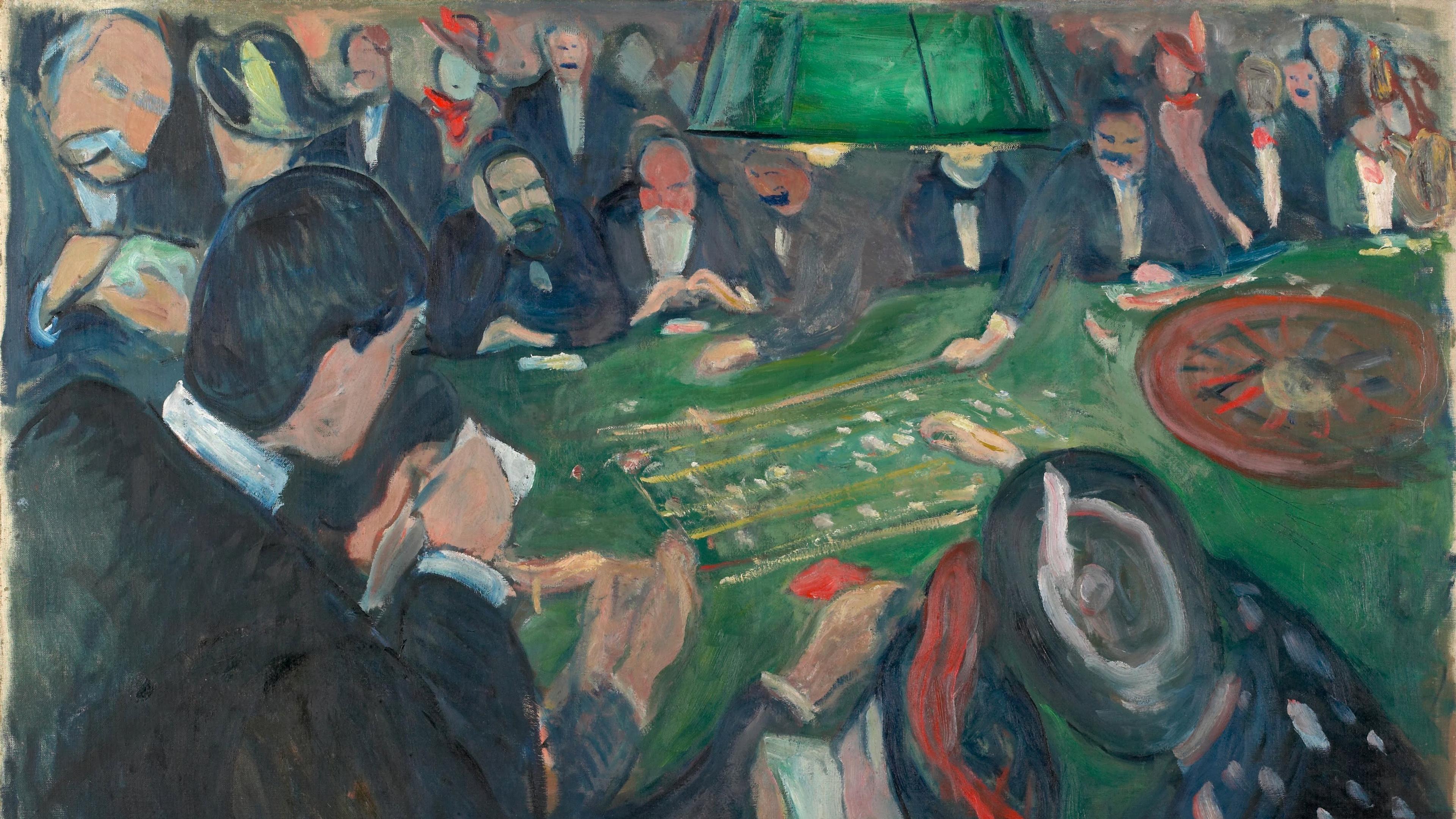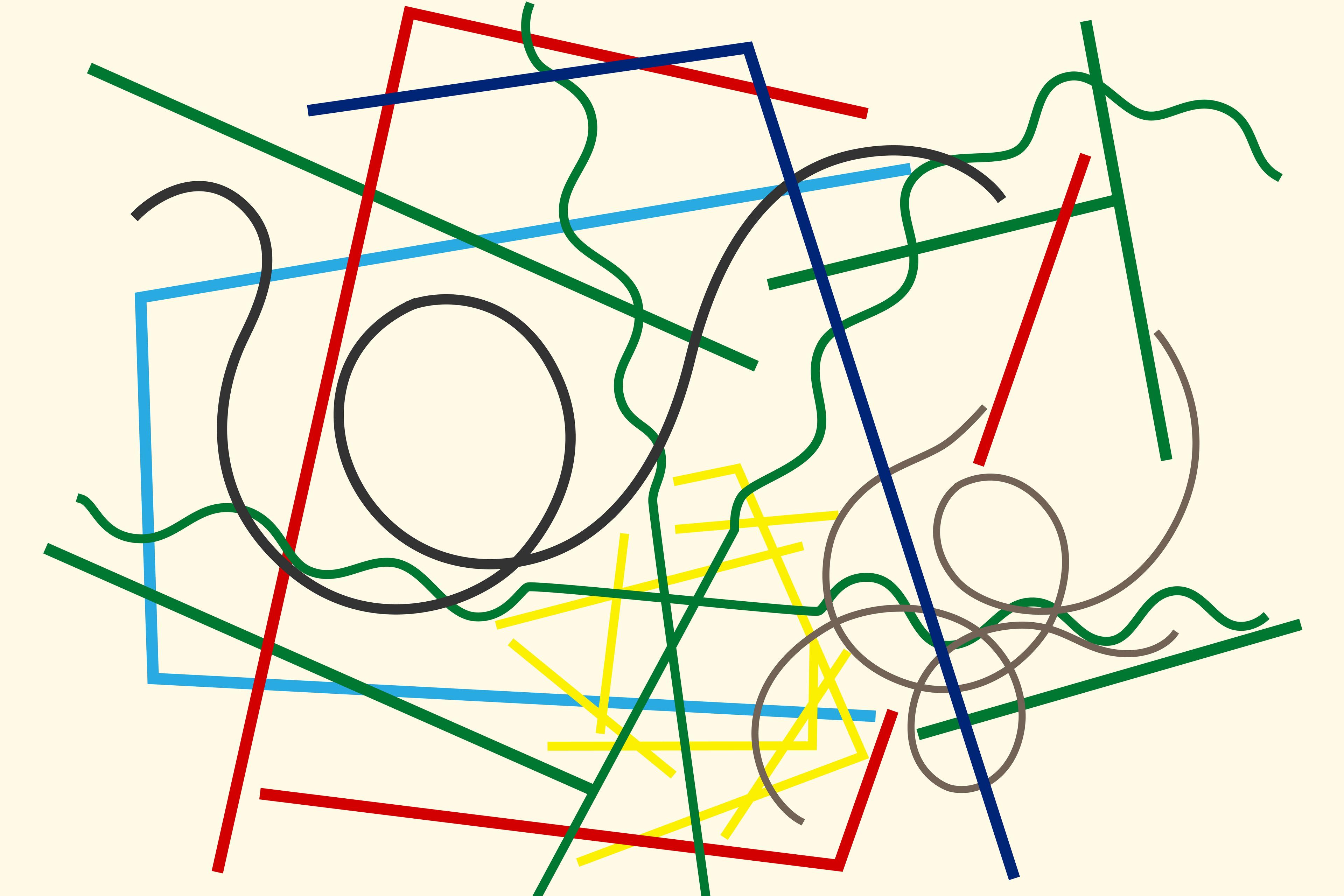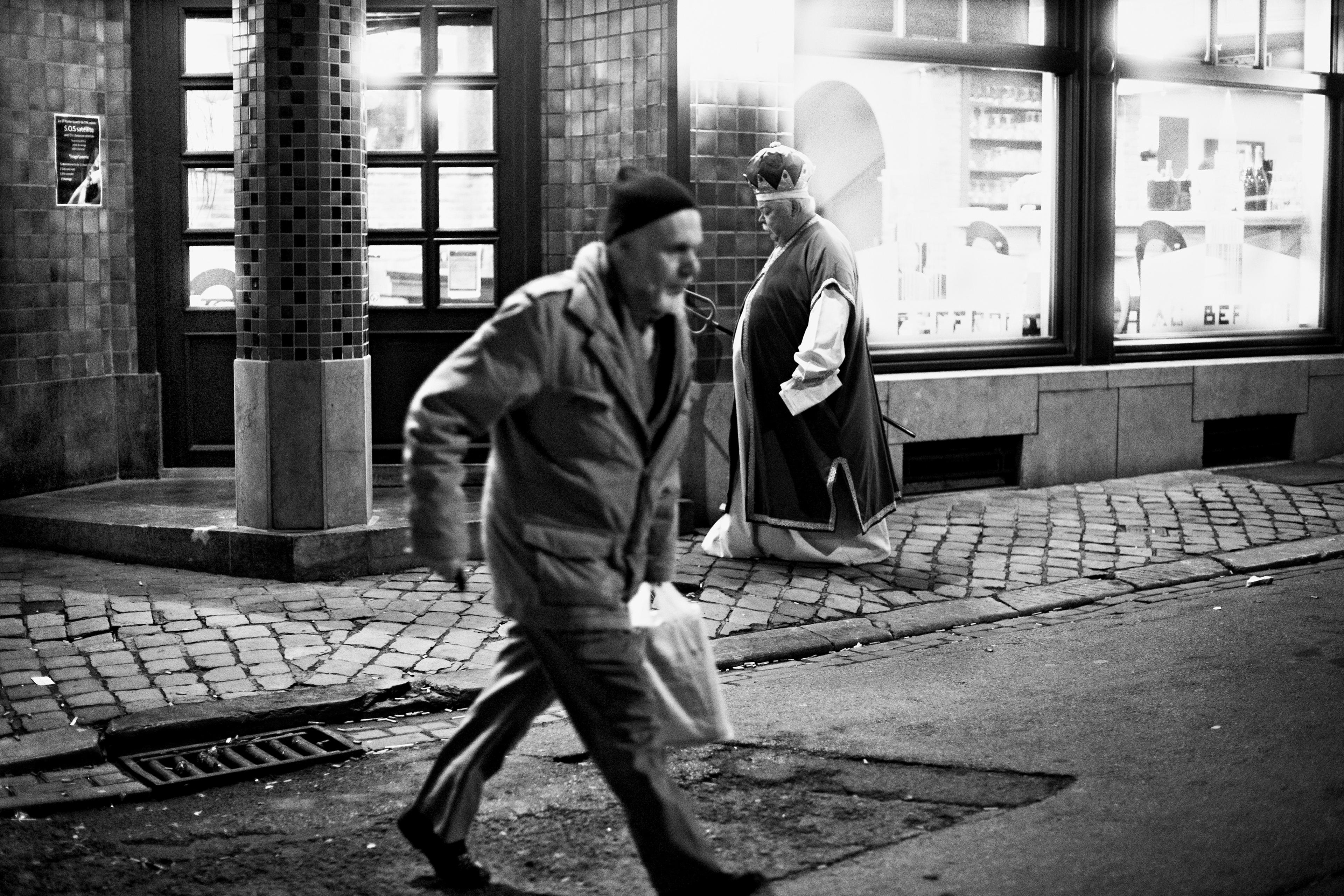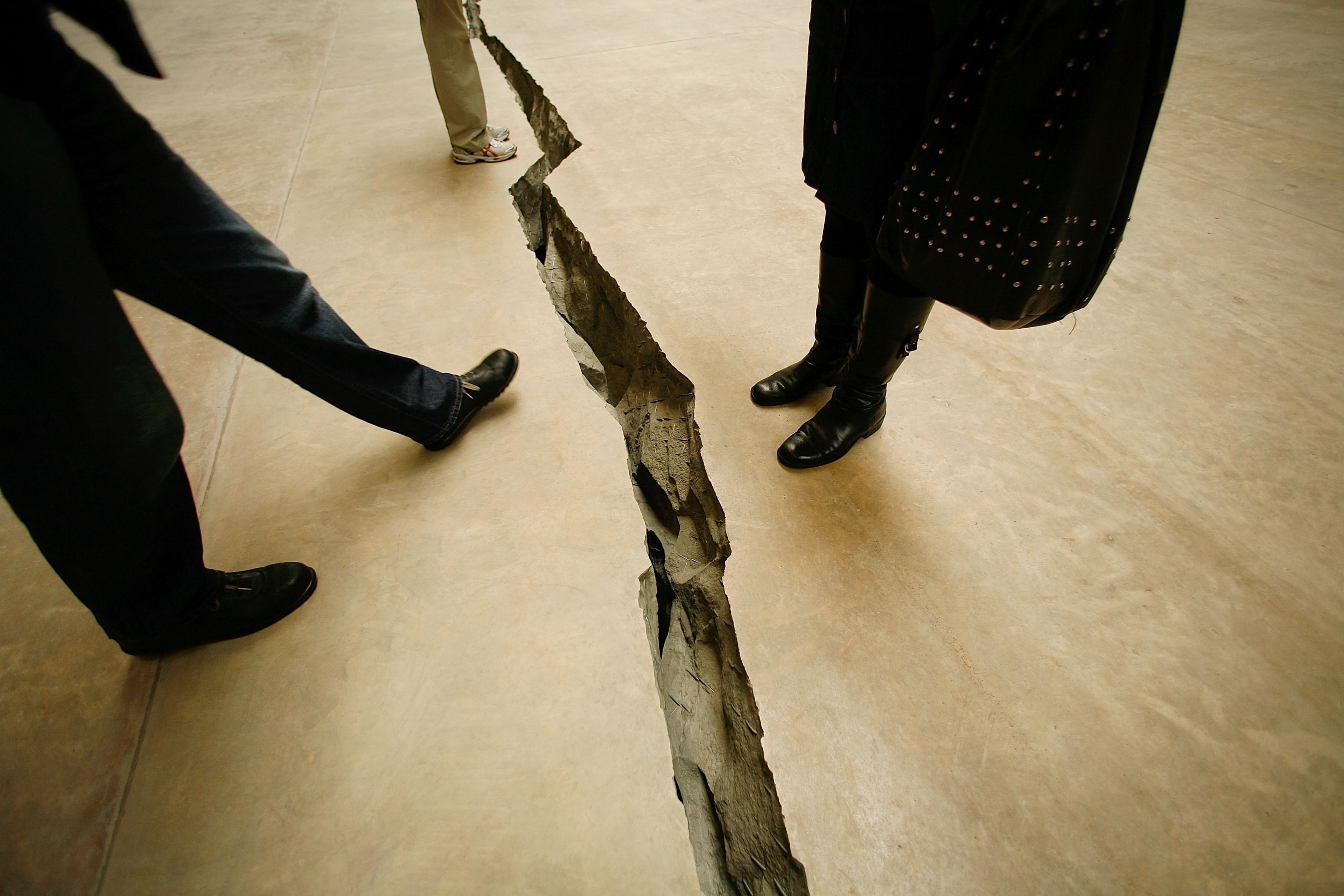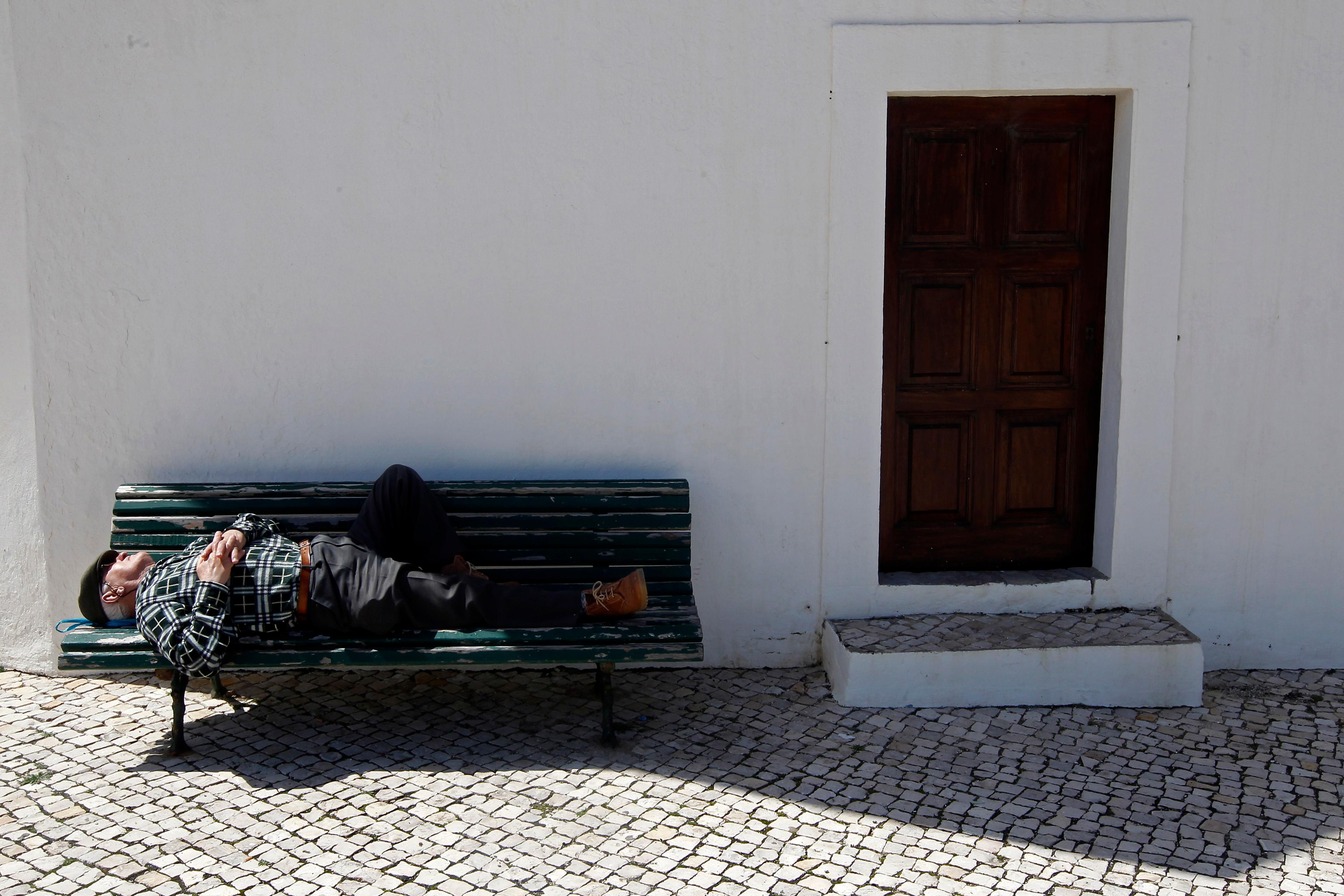Your luck, they say, can turn around. All you need to do is work a little harder. As a saying often attributed to the Roman philosopher Seneca goes: ‘Luck is what happens when preparation meets opportunity.’ A similar proverb is dated to the 16th century: ‘Diligence is the mother of good luck.’ And even the French chemist Louis Pasteur echoed the idea when he declared in 1854 that ‘chance only favours the mind which is prepared’. Today, many of us still believe that our fortunes can be engineered. But that is not always how the world works. Luck plays an ungovernable and unpredictable role in our lives, which we can’t fully mitigate through preparation or diligence. So why do we continue to believe we can turn our luck around?
On 18 August 1913, at a casino in Monte Carlo, a roulette wheel was spun, and the ball fell on black. This is not unusual. The alternating red and black colours of a roulette wheel mean that, like a coin toss, there is roughly a 50-50 chance that the ball will land on either colour. But as the ball continued to land on black, again and again and again, gamblers rushed to the table, placing bets on red in the belief that the alternating colour must be coming up. Convinced that things would eventually balance out, gamblers raised their bets each time the ball landed on black. But they continued to lose. Improbably, the ball would settle on black a total of 26 times.
The ‘Monte Carlo fallacy’, also known as the ‘gambler’s fallacy’, is the belief that a string of bad luck must end. It is the belief that there is a sense of balance in how luck plays out. It explains why gamblers playing roulette mistakenly believe that one colour is overdue after a consecutive series of the other colour, even though the odds remain 50-50. But the relevance of the Monte Carlo fallacy goes far beyond the tendencies of gamblers in casinos.
Though anecdotal evidence for the fallacy is well established, only in recent decades have experts confirmed our belief that a string of bad luck must end. In a 2005 study, two US researchers studying decision-making, James Sundali and Rachel Croson, analysed gambling behaviour at casinos in Reno, Nevada. Among those who were making 50-50 bets in roulette, Sundali and Croson found that gamblers who had watched one spin of the wheel evenly divided their bets between red and black. However, as the wheel landed on red (or black) in consecutive spins, the betting changed significantly. After five consecutive reds, 65 per cent of the bets were placed on black, and after six consecutive reds, 85 per cent of the bets were on black. Though the sixth spin of a roulette wheel is not influenced by the previous five spins, gamblers still placed their bets as if it was.
When someone works hard and plays by the rules, we hope they’ll be appropriately rewarded
Closely related to this is the mistaken belief that the distribution in small numbers will reflect the distribution in large numbers. Take the case of flipping a coin. The odds in any one flip are 50 per cent heads, 50 per cent tails. If we flip a coin 10,000 times, close to 50 per cent of the total flips will be heads and close to 50 per cent tails. However, if we flip a coin 10 times, the result could easily be seven heads and three tails. Though it is a mistake to think the odds of a small number of cases will reflect the odds of a large number of cases, we find this belief in many areas of life. For example, parents who have had several children of the same gender may believe that they are overdue for a child of the other sex and that their odds will shift if they keep trying.
Part of the reason why we cling to the belief that a string of bad luck must end is that we find it hard to reconcile the difference between the odds of large and small numbers, but there is also a deeper explanation for why these fallacies are so hard to shake: we like to believe the world is just and fair. We like to believe in balance. When someone works hard and plays by the rules, we hope they’ll be appropriately rewarded; when a crime is committed, justice is seen as being served if the criminal is sentenced to a punishment that fits the nature and severity of the crime. On the other hand, if an individual commits a serious crime and is neither apprehended nor punished, we feel an injustice has occurred. Thus, in situations where individuals experience events that are incongruent with their prior actions and behaviours – like young children who have terminal cancer, or civilians who are killed during a war – the world appears unbalanced and unjust. Our intuitive sense is that such an imbalance must be corrected. Unfortunately, this isn’t always possible.
Chance and luck have little interest in our notions of balance and deservedness. In life, bad things can happen to good people, and good things can happen to bad people. Accidents take place, illnesses strike, and unlucky breaks occur indiscriminately. In this regard, the randomness of the universe is blind to any sense of justice. We can attempt to rectify some of the negative consequences of this randomness, and be grateful when good luck strikes, but we should not deceive ourselves into believing that the world is always fair.
The philosopher Nicholas Rescher stated this well in Luck (1995) when he wrote:
The trenchant question of old (posed by unfortunate and fortunate alike) is: Why me; what have I done to deserve this? The irony of course is that the appropriate and correct answer is: Nothing. It is simply a matter of chance – of fortuitous luck.
In the bestselling book When Bad Things Happen to Good People (1981), the US rabbi and author Harold Kushner attempted to reconcile how God could allow so much injustice in the world. Kushner explained that these ‘bad things’ are basically random events. When they occur, one can turn to God for comfort and strength. Yet, as Jane Eisner wrote about Kushner, he believed it is our role ‘to accept the randomness of the universe, not to blame God or ourselves for tragedies but to believe in God’s omnipotent goodness as a nourishing force.’
Consequently, there may be times in life when there is little point to casting about for blame. The randomness of the universe simply does not abide by such a conjurer. In some respects, this understanding can be liberating. Rather than searching for blame or a causal reason, randomness can relieve us from such a burden.
We can’t control randomness and chance, but we can increase the odds that chance will shine in our favour
So how else might we use a deeper understanding of chance and randomness to our advantage? Can luck help create fairness, balance and a better world? I think it can.
By recognising the prevalence of luck, a strong argument can be made for the importance of perseverance in pursuing one’s goals. This is subtly different to the view of luck presented by Seneca or Pasteur, in which preparation and work lead to a change of fate. Many decisions affecting us involve some element of randomness and luck and these decisions may have little to do with our abilities or credentials. As the US sociologist Michael Sauder has observed, we often blame ourselves for things that could be attributed to chance: ‘We did not get the job we applied for because our application was misplaced by the hiring committee, but we assume we reached too far and attribute the outcome to our lack of worthiness.’
In discussing careers in the arts and entertainment fields (where good luck is often a prerequisite for getting ahead), the Canadian author Stephen Marche has observed that ‘persistence is the siege you lay on fortune’. We cannot control randomness and chance, but we can increase the odds that chance will shine in our favour by increasing the number of opportunities for a particular result to play out – we can, as the aphorism says, keep ‘many irons in the fire’. By being persistent, and thus increasing our chances, we can also increase the importance of talent and ensure that skill carries more weight.
Recognising and accepting chance and luck also fosters a heightened sense of gratitude. The recognition of randomness in our lives helps ensure we don’t take the good things for granted – it helps us understand the precarious nature of good fortune. As we gain insights into the world of randomness, we realise how easily we might find ourselves in less favourable conditions. This is reflected in the saying ‘count your blessings’, but is slightly different in that it recognises the precariousness of those blessings. In turn, this can help us develop a greater sense of both humility regarding our own accomplishments and empathy for the plight of others. While there is no denying that hard work and skills are important in life’s journey, there is also no denying that luck and chance may be every bit as important in shaping the course of our lives and our achievements. This splashes cold water on the belief that we live in a world of strict meritocracy where we deserve all that comes our way.
By recognising the ubiquitousness of chance in our lives, we are in a much better position to empathise with the misfortunes of others. Bad luck can strike anyone at any time. Accepting this fact allows us to imagine ourselves in the position of the less fortunate, and creates the possibility for more meaningful and empathetic connections with each other. In this way, recognising luck has significant policy implications.
Randomness underlines the importance of ‘social insurance’ and a strong social safety net. When we insure our home or car, we don’t anticipate having an accident immediately. Instead, we are acknowledging the possibility that we may experience an accident at some point in the future. Likewise, a strong social safety net is designed to protect individuals from the bad luck of economic hardship that can strike at any point. By understanding the frequency and reach of bad luck, we can blunt and counteract some of its negative impacts through a set of robust safety-net programmes.
For the ancient Romans, the goddess of chance, Fortuna, would spin her wheel of fortune, causing some to rise and others to fall. What goes up can come down, and vice versa. She delighted in reversing the fortunes of us mortals, and 2,000 years later she is still spinning her wheel. Many of us believe that we can find some deeper logic to the outcome of her spinning wheel and anticipate how it will spin. But things don’t always balance out. We can’t always turn our luck around.
By acknowledging and better understanding chance, we can begin to better co-exist as we make our way through life. We can begin to see the world as it is, rather than how we imagined it to be.
This idea features excerpts from The Random Factor: How Chance and Luck Profoundly Shape Our Lives and the World around Us (2024) by Mark R Rank, published by University of California Press.
